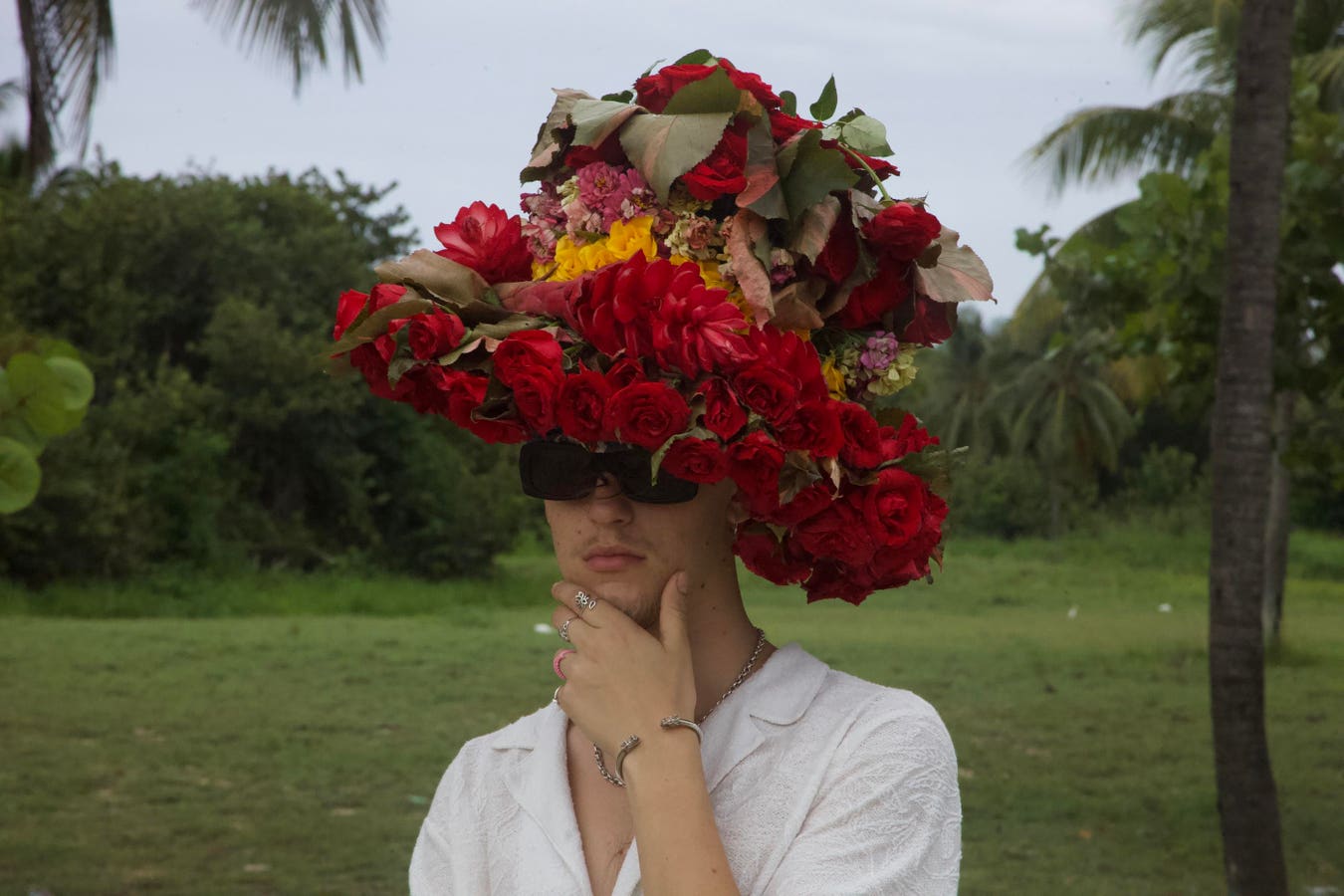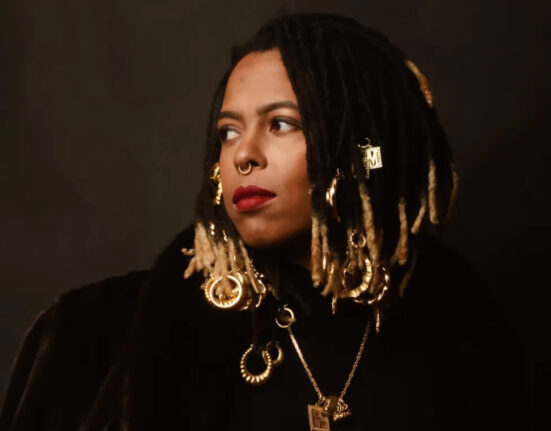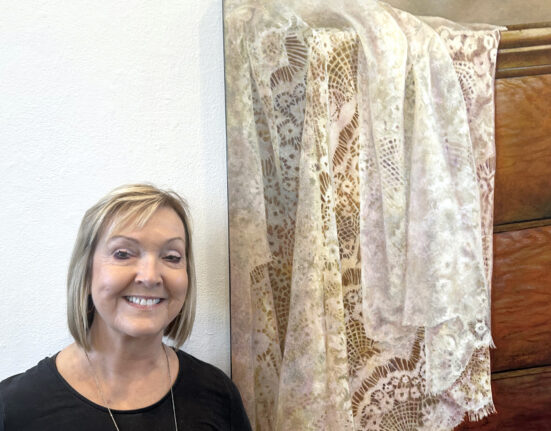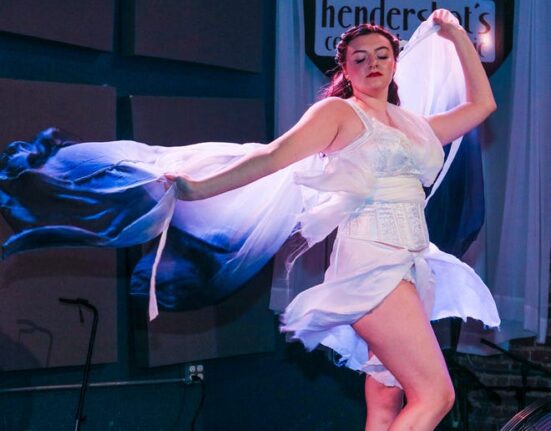Embarking on a journey of self-discovery and artistic evolution, 23-year-old Montreal-based singer, producer, and DJ Luka Hollinger underwent a deliberate transformation, adopting the persona of Rondo Banks just two years after his initial foray into music.
Renaming himself after his grandfather, Rondeau, paired with a name he envisions for his future child, Banks, the emerging artist reflects on the challenges of navigating societal expectations with an entirely new genre.
He sees this shift as a way to embrace individualism and create a place for genuine self-expression.
The artist’s latest single, “Moving Slow,” released on August 28, 2023, defies expectations with its reggae vibe.
Its music video features the artist’s 76-year-old grandfather breaking free from his routine by putting down a book before starting to dance around his house in a transformative moment mirroring the Hollinger’s own identity.
According to Hollinger, the idea behind it is to encourage viewers to disconnect from societal expectations and savor life at a slower pace, emphasizing self-enjoyment.
“The video is about removing yourself from whatever box society puts you in—your school, your family—and just moving slow and enjoying life and taking time for yourself.”
Breaking free of boundaries
After spending his early years in Montreal, Hollinger, along with his mother, an award-winning photographer, moved to Havana, Cuba.
The time spent there deeply influenced the artist’s creative process. Inspired by his new home’s musical and dance culture, Hollinger values music for its uniting effect across communities.
In discussing his more recent musical influences, Hollinger emphasizes cultural appreciation over appropriation, drawing inspiration from African, reggae, and Latin music. His six-year residency in Cuba significantly shaped his Afro-influenced style, especially influenced by the Afro-Cuban movement.
“I’m just trying to be a citizen of the world and do what inspires me. As of right now, it’s mainly African and dance music,” says Hollinger on his broadening artistic approach.
He underscores the message that creative pursuits are not about claiming ownership but demonstrating the boundless possibilities available to all artists from the world.
“We’re not trying to claim anything, we’re just trying to show the world that you can literally do anything you want,” he says.
Embracing risks for self-discovery
The transition from Canada to Cuba and later back to Canada presented Hollinger with a personal challenge in discovering his artistic voice. And yet, this is precisely what makes this his driving force.
Besides actively broadening his identity through multifaceted dimensions to his artistic journey, the singer has recently founded HONEYÏCE, a production company uniting a diverse collective of creatives across Havana, the United States, and Canada.
In joining graphic designers, photographers, deejays, dancers, models, and video editors, this collaborative effort is a testament to his commitment to fostering creativity across borders.
“It’s given me something to prove to myself. If you want to be a part of [the music scene], you have to do something great,” he says.
“You can’t just do something for fun and be respected or be loved. You have to take a risk—that’s why I’m doing reggae music, putting my grandfather as the main model in my videos, working with my friends in Cuba who don’t have Wi-Fi,” he continues.
The ultimate purpose behind these challenges is to undergo a transformative process of self-discovery and self-love, he says, as well as to inspire those around him to embrace risk-taking, and foster a mindset that encourages personal growth and empowerment.
Creativity as a choice
Creativity is integral to business success, driving innovation and problem-solving in a dynamic and evolving market.
According to Hollinger, the key to being creative is a decision one must make—the choice to define the kind of person one aspires to become. He believes the human potential is as strong as the ability to focus the mind.
And so, he argues that adopting a creative mindset is like working out a muscle, and that conscious decisions to be more creative can lead to a transformative overflow into all aspects of life.
“Everything that I do has sort of mutated into being creative because it’s in the front of my mind every day,” says Hollinger. “I want to be different. I want to be unique. I’m not trying to follow a certain path that was made.”
When prompted about his future goals, Hollinger describes wanting “to feel comfortable with the person that I am and feel loved and keep being a genuine, authentic person.”
Hollinger says he aspires to assist others in expressing themselves, shifting the focus from personal gain to contributing to the expression of others.
His final piece of advice? “Walk your path with the purpose of being you,” he says.
This very much fits with the latest book, Generation Why: How Boomers and GenX Can Lead and Learn from Millennials and GenZ.
A particularly pragmatic chapter in the book delves into individuals in their twenties, like Hollinger, who are actively seeking purpose, as he shares.
As older individuals, one of our duties is to help younger people uncover their purpose. In both my CEO Insights MBA class at McGill and on my weekly radio show, The CEO Series, I regularly ask CEOs three key questions: “What is your purpose? When did you find it? Has it evolved?”
The enthusiasm from MBA students is noticeable as they lean forward with particular interest.
In a world where change is paramount, artists and business leaders alike can learn from Hollinger’s passion for not only reinventing his own artistic narrative, but also cultivating a space for diverse talents to flourish.
Follow me on Twitter or LinkedIn. Check out some of my other work here.







